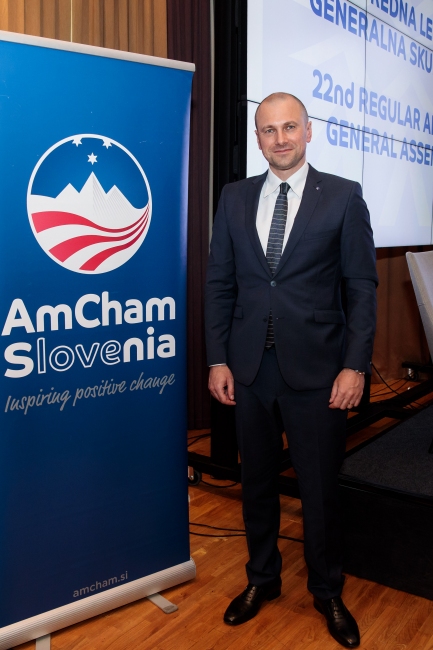“Create a bubble of excellence within your scope of influence!”
What are the vital, urgent changes that we need to make in the next two years in Slovenia?
We need to significantly raise the level of ambition of what we want and expect from our economy, state, and society, and then define key development priorities that will allow us to start moving quickly towards the defined goals. We urgently need to include all segments of society and especially young people in this dialogue, as this is about their prospects, and systemic changes have long-term cycles and consequences. It is clear to everyone that we need decisive and comprehensive structural reforms of the pension, education, and healthcare systems. At the same time, in an aging society, we need to pay much more attention to providing adequate care for the elderly and the implementation of an incentive-based family policy.
We talk a lot about cooperation between representatives of the state, the business sector, and civil society. How can this be made even better?
Simply, instead of mutual exclusion due to differences in gender, religion, worldview, nationality, historical experience, etc., we look to the future and begin to respect each other, talk to each other, define the most critical priorities, and put Slovenia and Slovenes in first place, and everything will fall into place on its own.
You often emphasize the importance of common sense and adding “Slovenia first”. How can these two qualities be applied and implemented?
When I speak of common sense (in Slovenian we call it “zdrava kmečka pamet”), I mean the power of knowledge, relevant experience, facts and figures against ideological, often dogmatic beliefs, I point to the need for economic pragmatism, efficiency, and cooperation, against exclusion, intentional denigration and undermining. Implementation is, of course, much more difficult, as it requires mutual respect, equal opportunities, recognition, and rewarding of objective results, against clientelism, nepotism, and practically lifelong elites without at least the occasional market test of international competitiveness. It is an enormous challenge in a highly polarized society, but it is necessary to overcome this if we want to offer our best people good prospects, so that they will want to stay in or return to their own country. I sincerely believe that our ambitions should be even higher; we should also try to attract the best international talents to Slovenia. If we want our companies and social subsystems to be managed at an internationally competitive level, they need the best people, and those people must be given the opportunity to prove themselves.
What motivates you personally?
Business achievements based on hard work, difficult experiences, challenging circumstances and new insights. Each one of these convinces me that we are on the right track and that it pays to persevere. On a personal level, my family, my vocal and stalwart allies, our Slovenia, which provides us an exceptionally high quality of living, my Haloze, and chores in the vineyard, Korant masks, table tennis, rock concerts, that give me a special kind of energy. And I could list many more.
What’s the best lesson in leadership you ever had, and who gave it to you?
“Create a bubble of excellence within your scope of influence!” I think professor Pierre Casse said it during my EMBA studies at the IEDC in Bled. Don’t look for excuses, don’t point fingers at others, aspire to be the best, and work hard to make the results speak for themselves. This can also help you inspire similar behavior in the people around you. Then you just need to set a common goal, and there’s no way you won’t succeed. Our top athletes understand this perfectly. Why shouldn’t we apply this approach to all segments of society?
